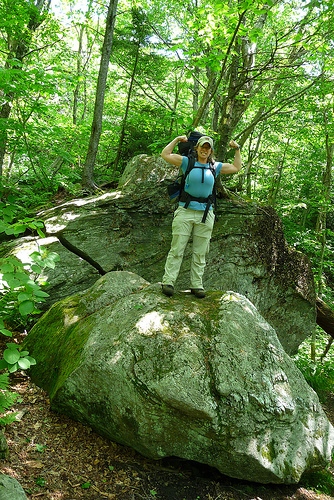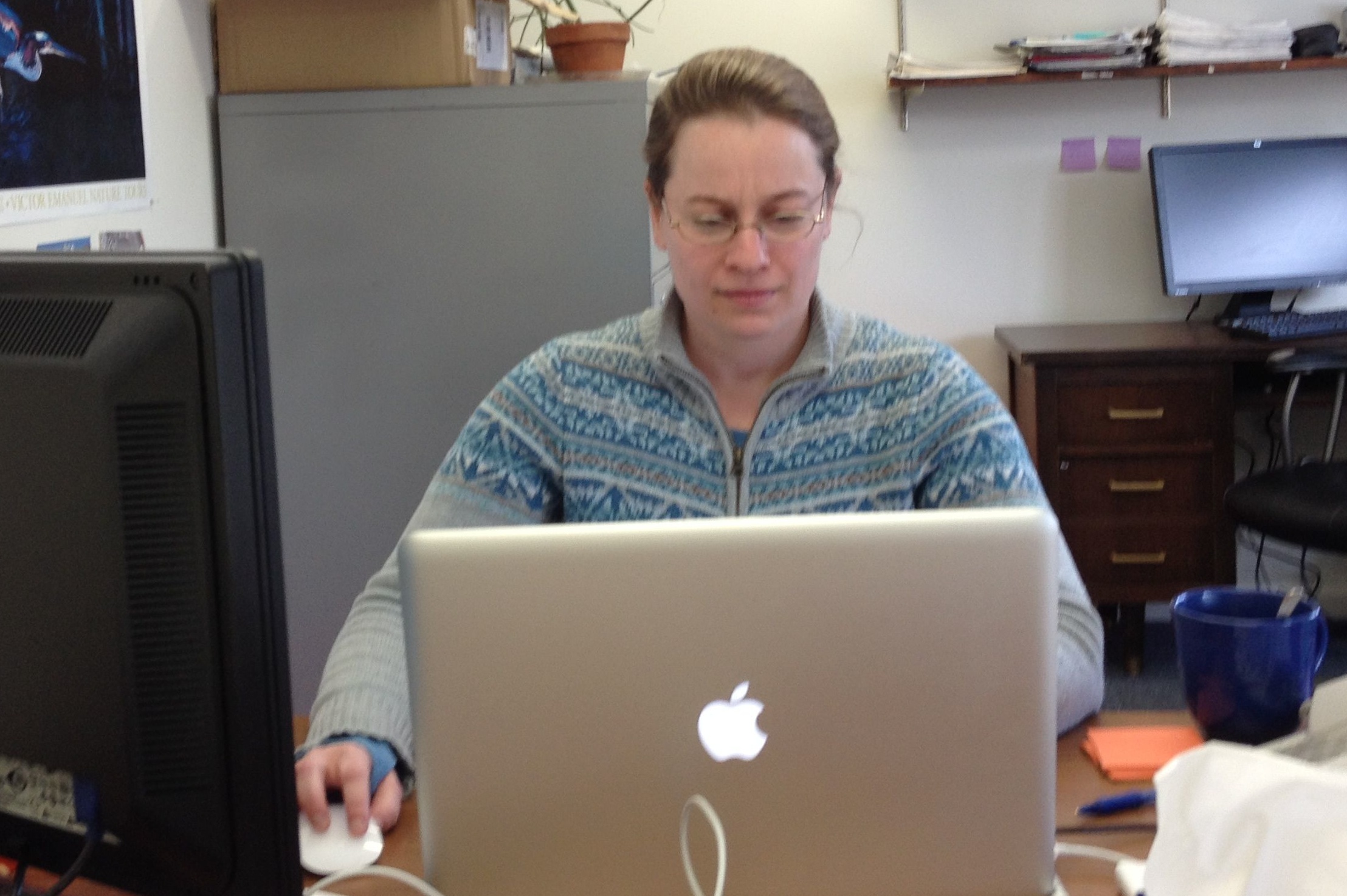
Strenuous hikes, black fly swarms, pre-dawn surveys- bah! I conquer the vicious rock and scoff at these minor challenges!
2 a.m. hikes up steep mountain trails to conduct dawn point counts. Mist-netting on Mt. Mansfield as the sun rises. Attaching geolocators to grassland birds in the back of a Subaru station wagon. Romping through fields wielding a giant net, scoping the flowers for bumblebees.
Field work can be hot, tiring, dirty, wet, and muddy. We get up early. We get scratched, scraped, soaked, and sometimes, yes, pooped on. But to sum it up in a word, field work is- sexy. Adventure, animals, outdoors, conservation… it’s hard to beat those up-close photographs of a grinning biologist clutching a rare bird or clinging to a mountain crag in search of a nest.

Armed only with a cup of tea and a Mac in a climate-controlled room, I bravely tackle a tricky Mountain Birdwatch analysis.
But what about those other months of the year? With 10-inch blankets of snow covering the Northeast, VCE staff are more likely to be found tapping at a computer than radio-tracking a bird or confirming a vernal pool. Although this tends to be the off-season for field work, it is during these cold, snowy months that VCE-ers are hard at work on other conservation essentials: analyzing our hard-won data, crafting reports and journal articles, fundraising, evaluating new projects, and searching for the office chocolate stash. (That bag of Hershey’s Kisses has got to be around here somewhere…)
Field work represents just one small element of the essential conservation tools we develop at VCE. Today, we released a report on Mountain Birdwatch, one of VCE’s flagship citizen science projects. In June, ~100 citizen science volunteers hike the Northeast’s most rugged mountains, searching for Bicknell’s Thrush and other high-elevation songbirds. During the rest of the year, we put all of that incredible data to work. Once the field season is complete, we check and compile our data, send feedback to volunteers, update our route maps and descriptions, tally our observations, construct reports, and collaborate with our international colleagues to determine how to improve the overall program. We also work on more in-depth analyses to answer questions such as, how have high-elevation bird populations been changing over a decade? Can we connect avian trends with environmental variables such as climate change or competition? How do we effectively and efficiently monitor spruce-fir forests in Canada, given the high levels of forestry and the difficulty of access?
The final step towards conservation happens not when we pack up our mist-nets or store our camping gear for the season, but when our data are used for on-the-ground conservation efforts. In the last three months alone, scientists from across the Northeast have requested Mountain Birdwatch data to:
-evaluate the potential effects of climate change both on high-elevation birds and spruce-fir habitats
-assess how high-elevation road maintenance might impact vulnerable species
-determine the accuracy of birders’ reports to eBird
-evaluate the importance of the White Mountain National Forest to Bicknell’s Thrush populations
Our 2013 Mountain Birdwatch report discusses the development of an international high-elevation survey program, details our survey results for the last three years, and evaluates the challenges of developing and sustaining an international monitoring program. While many of us prefer delighting in a dawn chorus to slaving over a hot computer, reports like this one synthesize and distribute essential information to our target audiences: citizen scientists, researchers, conservationists, politicians, and the public.
This is conservation in all its glory.

Great story! Thanks! And thanks for the link to the report! Much appreciated!
Hard work Judith, you VCE people are a tough and smart bunch. Great for all of us that you enjoy it so.